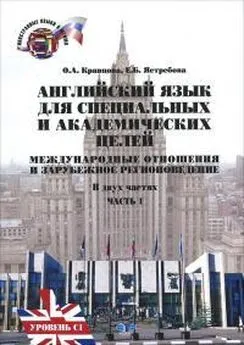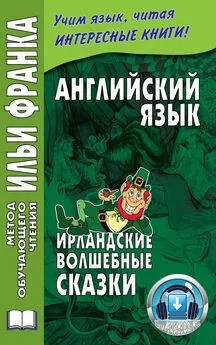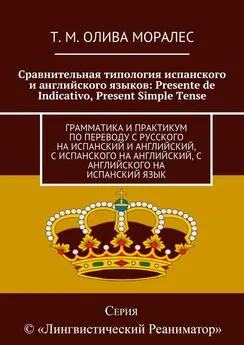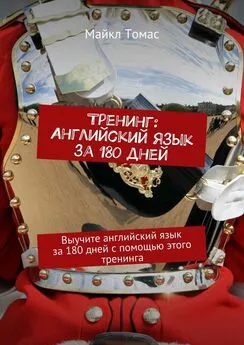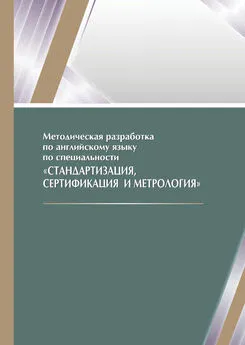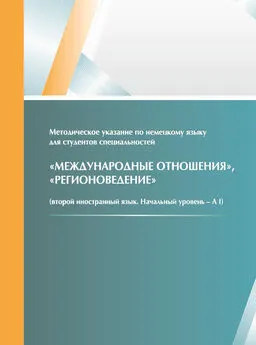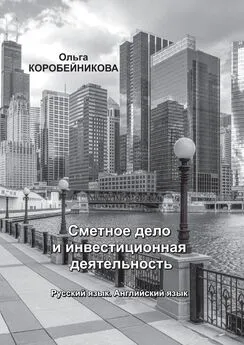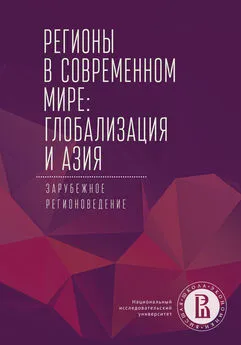Ольга Кравцова - Английский язык для специальных и академических целей: Международные отношения и зарубежное регионоведение. Часть 1
- Название:Английский язык для специальных и академических целей: Международные отношения и зарубежное регионоведение. Часть 1
- Автор:
- Жанр:
- Издательство:МГИМО-Университет
- Год:2015
- ISBN:978-5-9228-1210-8
- Рейтинг:
- Избранное:Добавить в избранное
-
Отзывы:
-
Ваша оценка:
Ольга Кравцова - Английский язык для специальных и академических целей: Международные отношения и зарубежное регионоведение. Часть 1 краткое содержание
Адресовано студентам четвертого курса факультетов и отделений международных отношений и зарубежного регионоведения.
Английский язык для специальных и академических целей: Международные отношения и зарубежное регионоведение. Часть 1 - читать онлайн бесплатно полную версию (весь текст целиком)
Интервал:
Закладка:
http://www.europeanvoice.com/article/too-early-to-say-homo-europaeus-is-doomed/
By John Wyles 46 46 /ew.ro:'paj.us/
47 47 John Wiles is Senior Adviser to EPC (European Policy Centre) on EU politics and institutions, Chair of the EU Politics and Governance Forum
25.01.2012
Europeans may not view Europe as a homeland, but the notion of a common identity emerging should not yet be dismissed.
For at least 40 years, journalists, politicians and political and social scientists have been scouring Europe for a new species of animal. It would be recognisable by eyes that are focused on matters higher than the parochial 48 48 Parochial — having a limited or narrow outlook or scope
interests of the nation state, and a preference for entering its habitat through the door marked ‘Europe'. Closely related species tend to choose the entrance symbolised by their native territory, but the concept of a European door spoke to an ideal, an inclusive identity and shared loyalties.
This animal had no clear profile and its DNA had scarcely formed during the early post-war years when the idea of integration began to enthuse the political classes in the western part of the European mainland. But it was an islander, Winston Churchill, who in 1948 offered a first definition of what it would feel like to belong to this new breed.
“We hope to see a Europe where men of every country will think of being a European as of belonging to their native land, and ... wherever they go in this wide domain ... will truly feel, ‘Here I am at home.'”
Unit III. EU at the Crossroads
For more than 60 years, this aspiration has shaped hopes and expectations of the benefits of European integration. The legacy of Churchillian thinking, the desire to make people feel at home in Europe, is evident in the widespread search for a formula that would make a reality of a European demos. The goal is to forge a stronger European identity through heightened political participation and institutional accountability.
Many have shared Churchill's vision and closely examined polling evidence and political behaviour for signs of its emergence. It was assumed that he offered a legitimate benchmark against which to judge the impact, or lack of it, of European integration on the citizens of Europe's nation states. When this assumption seemed to be feeble, especially with the growth of nationalist populism in many member states, the conclusion was drawn that Europe was failing to capture the loyalty and trust of its citizens. Its legitimacy is now held to be in peril. The inability of people to identify with the Union and its institutions is underscored and depicted as a major political adjunct to the economic crises currently afflicting Europe.
Gareth Harding, a former European Voice journalist, evangelises 49 49 To evangelise — to be very enthusiastic about something and tell people how good it is
this view in an article for the latest issue of Foreign Policy. His charge sheet itemises four important failures of European integration: regional and national differences have not dissolved; Europeans are divided on everything from the role of the state to the obligation to pay taxes; there is no real consensus on what are European values; and the nation state remains the primary focus of loyalty and identity.
Is a sense of European identity really absent beyond the 10% who regularly claim to feel its weight rather than their national origins? Could it be that Harding and many others are looking for a political mirage and, therefore, highlighting misleading evidence? What should we make of Eurobarometer polls consistently reporting that freedom to travel, study and work is the attribute most strongly and positively associated with EU membership? This may not imply a widespread sense of a common homeland, but it does suggest that many people identify with the European space enough as to feel at ease about moving around in it.
This comfort zone provides some insulation against the unwelcome realisation that the Union has lost reputation and prestige at home and abroad through its handling of the eurozone debt crisis. It should surprise no one that there has been a loss of trust and confidence in EU leadership and institutions when ‘Europeans' as diverse as George Osborne, the UK finance minister, and Mario Monti, a former European commissioner and now Italy's prime minister, complain about the quality of crisis management.
Resistance and protest against austerity and structural reforms in Greece, Italy, Portugal and Spain is entirely predictable. Much less predictable is the headway that at least three of these governments are making in winning popular acceptance of draconian measures vital not only for national economic survival, but also for sustaining the European project. The eurozone crisis and the affliction and infliction of fiscal austerity across many of the 27 may be creating a panEuropean identity out of shared negative experience.
Millions of Europeans cannot avoid the continent-wide truth that ‘we are all in the same boat'. Political arguments in most member countries are burning around similar priorities and values: for cutting public spending, for reforming welfare systems and alleviating and reducing unemployment. At the European level, the differences that Harding and others highlight are not proving any kind of obstacle to collective action to steer national economic and fiscal policies.
Unit III. EU at the Crossroads
We are in a transformative moment, poised between integration and disintegration. Popular acquiescence to a forced march towards fiscal union is by no means consolidated, nor is the political route clearly marked. However, it would not be foolish optimism to see a common identity emerging from eventual acceptance of stronger, shared obligations to sustain the common welfare. But first, the EU needs to deliver.
1. George Gideon Oliver Osborne (born 23 May 1971) is a British Conservative Party politician who has been the Chancellor of the Exchequer and Second Lord of the Treasury since 2010 and the Member of Parliament for Tatton since 2001. A pragmatic Eurosceptic.
2. Mario Monti (born 19 March 1943) is an Italian economist who served as the Prime Minister of Italy from 2011 to 2013, leading a government of technocrats in the wake of the Italian debt crisis.
Monti served as a European Commissioner from 1995 to 2004, with responsibility for the Internal Market, Services, Customs and Taxation from 1995 to 1999 and for Competition from 1999 to 2004. Monti has also been Rector and President of Bocconi University in Milan for many years. On 12 November 2011, in the midst of the European sovereign debt crisis, Monti was invited by President Giorgio Napolitano to form a new technocratic government following the resignation of Silvio Berlusconi. Monti was sworn in as Prime Minister on 16 November 2011, just a week after having been appointed a Senator for Life by President Napolitano, and initially became Minister of Economy and Finances as well, giving that portfolio up the following July. From 16 May 2013 to 17 October 2013 Monti was the President of Civic Choice, a centrist political party.
1. It (the new species of animal) would be recognisable by eyes that are focused on matters higher than the parochial interests of the nation state.
2. Closely related species tend to choose the entrance symbolised by their native territory ...
3. This animal had no clear profile and its DNA had scarcely formed during the early post-war years .
4. Could it be that Harding and many others are looking for a political mirage and, therefore, highlighting misleading evidence?
5. . the infliction of fiscal austerity across many of the 27 may be creating a pan-European identity out of shared negative experience.
6. Millions of Europeans cannot avoid the continent-wide truth that ‘we are all in the same boat'.
7. But first, the EU needs to deliver.
1. Why do you think the author uses an extended metaphor in which he compares a “new” European to a new species of animal?
2. What does the idea of a European identity imply?
3. What arguments are usually used to support the opinion that European integration has failed?
4. What facts prove that many people embrace the idea of a common Europe?
5. What has led to the growing distrust of the EU and its institutions?
6. In what way has the euro zone crisis brought the European nations together?
7. What makes the author optimistic about the prospects of forging a common European identity?
Unit III. EU at the Crossroads
1. Do you share the author's optimism?
2. Do you think a common identity can be based on shared economic obligations?
3. What shapes a national identity?


a) the future of European integration
b) the rise of populist nationalism in Europe
c) the feasibility of forging a common European identity
B. Compile a list of Topical Vocabulary necessary for the discussion of the issues (to be shared in class).
VOCABULARY PRACTICE 2
1. not excluding any section of society or any party involved in something
2. a standard or point of reference against which things may be compared
3. failing to convince or impress
4. a thing added to something else as a supplementary rather than an essential part
5. (of a problem or illness) cause pain or trouble to; affect adversely
6. a quality or feature regarded as a characteristic or inherent part of someone or something
7. the state of being protected from unpleasant influences or experiences
8. the act of imposing something unpleasant on smb
9. to make (suffering, deficiency, or a problem) less severe
10. to guide the movement or course of
11. to be or cause to be balanced or suspended (figurative)
12. the reluctant acceptance of something without protest
Unit III. EU at the Crossroads
1. This assessment of the candidates makes the assumption that Governor Romney will hold to
his own policy positions, a ______________assumption given Romney has been known to
publicly alter his positions in periods of time occasionally under twenty-four hours.
Читать дальшеИнтервал:
Закладка:
